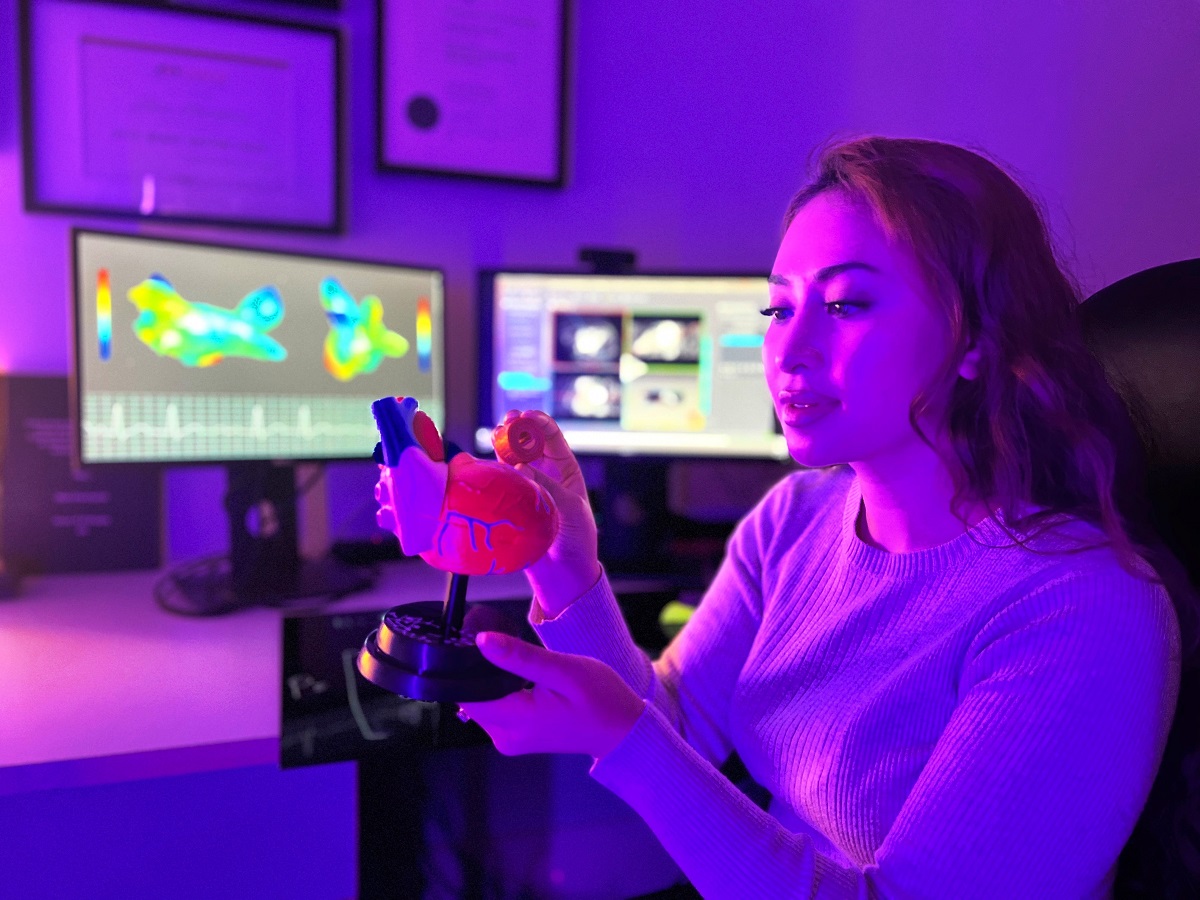
By Shannon Coleman
The Vice-Chancellor’s Early Career Researcher Award at Flinders University recognises and rewards excellence in research across all colleges. The award not only acknowledges the exceptional work of early-career researchers but also provides them with opportunities to broaden their networks and enhance their standing and recognition as staff members of the University.
This year, five outstanding researchers from the College of Medicine and Public Health were recognised with the award. These winners included Kristie Stefanoska and Yohannes Adama Melaku and Flinders alumni Courtney Ryder (BSc ’06, BEng(Biomed) ’06), Hannah Scott (BPsych(Hons) ’17, PhD(Psyc) ’20), and Dhani Dharmaprani (BEng(Biomed)(Hons) ’16, PhD(Med) ’20).
Dr Dhani Dharmaprani is a Biomedical Engineer and Postdoctoral Research Associate in Cardiac Electrophysiology at the Cardiac Signals Analysis Laboratory, led by Professor Anand Ganesan. She graduated with a Bachelor of Biomedical Engineering with Honours at Flinders in 2016, before completing her PhD in 2020. Her current research focus is on exploring computational and analytical approaches to better understand the mechanisms underlying cardiac fibrillation.
Dr Dharmaprani’s work addresses the significant challenges posed by both Atrial Fibrillation (AF) and Ventricular Fibrillation (VF). These disorders, characterised by irregular heart rhythms are associated with high risks and limited treatment options. She aims to uncover new ways of treating AF and VF by studying computer models of the heart, analysing signals from human patients and animal models, and establishing anatomically and electrophysiologically accurate computer models called ‘virtual hearts’.
“It is clear that current treatments, particularly for AF, are only moderately effective at best,” Dr Dharmaprani explains. “Underlying these failures are the heterogeneous electrical dynamics responsible for cardiac fibrillation in individuals, which makes it difficult to understand what treatment is needed for a specific patient.”
At the Cardiac Signals Lab at Flinders University, Dr Dharmaprani and her team develop ways to measure and quantify this unique electrical behaviour to guide treatment selection based on the patient’s specific electrical dynamics. By establishing ‘virtual hearts’, Dr Dharmaprani hopes to provide a unique opportunity to simulate and test different interventions in a virtual environment before applying them to patients. This approach has the potential to optimise treatment plans, enhance the success rate of interventions, and minimise risks and complications associated with invasive procedures.
Dr Dharmaprani’s research has shed light on the mechanisms underlying cardiac fibrillation, challenging the conventional understanding of the role of electrical waves called ‘rotors’ in AF and VF. She has used mathematical approaches inspired by thermodynamics in statistical physics to accurately measure how rotors form and die in the heart. Her findings indicate that it is not individual rotors that sustain AF and VF but rather the continual process of their regeneration. This ground-breaking work has led to the development of the first ‘governing equations’ that summarise and predict AF and VF.
Her research has also extended to understanding how a patient’s cardiac electrical dynamics respond to specific antiarrhythmic drugs and whether these drugs increase the likelihood of AF termination. Dr Dharmaprani aims to develop technologies that integrate these metrics to guide AF treatment and treatment selection.
Dr Dharmaprani’s work has received numerous accolades, including being presented the Heart Rhythm Society Young Investigator Award 2021, alongside research from prestigious institutions such as Harvard’s Brigham and Women’s Hospital, Mayo Clinic, and Johns Hopkins. She has had the opportunity to present her work at conferences worldwide, including the Cardiac Society of Australia and New Zealand Annual Scientific Meeting, the Heart Rhythm Society Annual Scientific Meeting, the Asia Pacific Heart Rhythm Society Annual Scientific Meeting, and the IEEE Engineering in Medicine and Biology conference.
Flinders University’s support, including the Vice-Chancellor’s Early Career Researcher Award, has enabled Dr Dharmaprani to expand her networks and collaborations, further enhancing her contributions to the field of cardiology.

